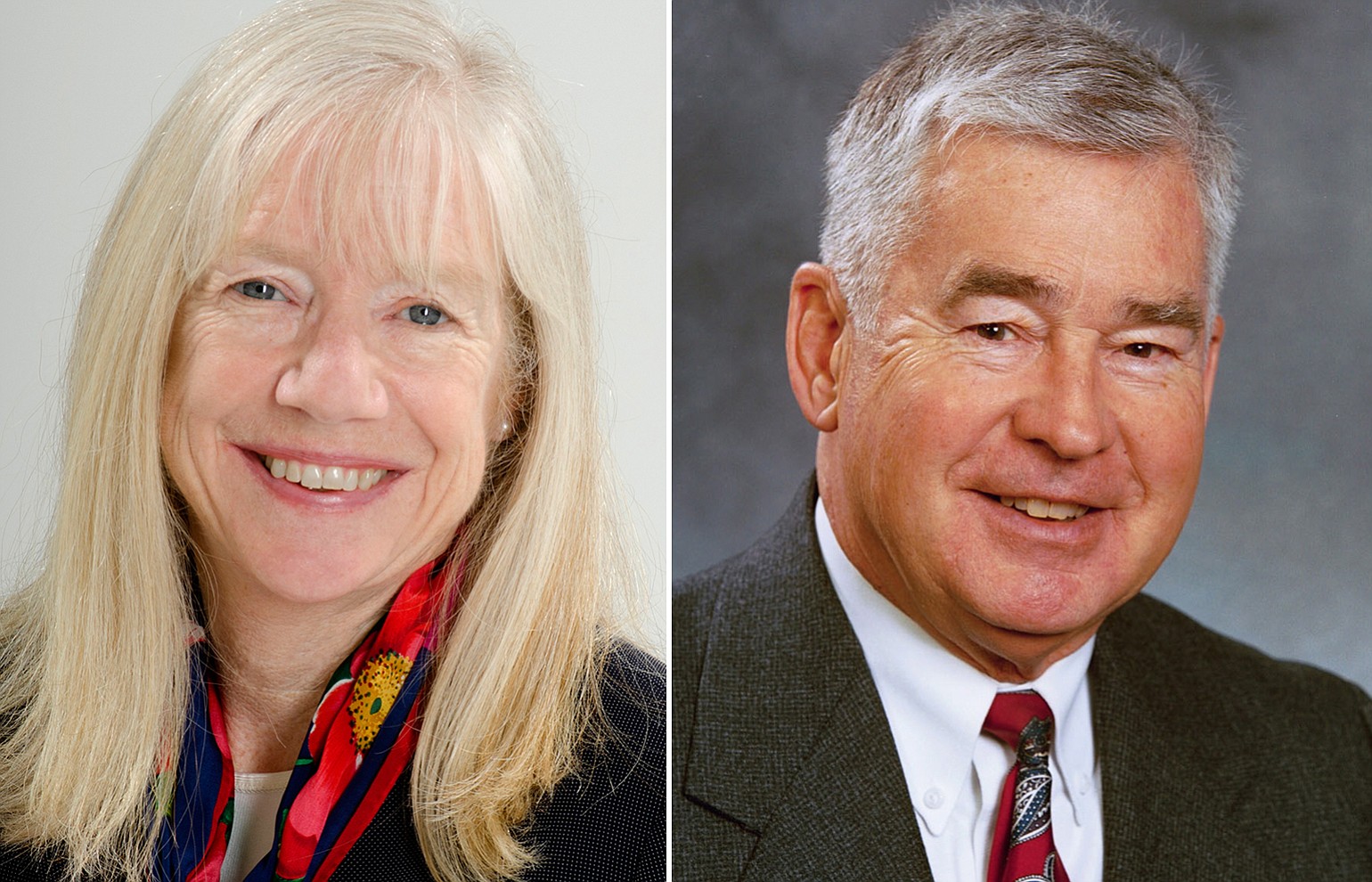Byron Hanke
Age: 80.
Residence: Vancouver.
Education: Degree in business administration from the University of Washington.
Occupation: Incumbent Clark Public Utilities commissioner.
Past elected positions: Utility commissioner for 12 years.
Endorsements include: IBEW Local 48; IBEW Local 125; Building Industry Association; Vancouver Firefighters Local 452; 11 Vancouver First Citizen Award recipients.
Campaign funds: $19,267
Web: www.byronhanke.com.
Jane Van Dyke
Age: 62.
Residence: Vancouver.
Education: Juris doctor – Lewis and Clark, Northwestern School of Law; bachelor’s – University of California.
Occupation: Executive director, Columbia Slough Watershed Council.
Past elected positions: Clark Public Utilities commissioner for 18 years.
Endorsements include: Scott Brattebo; Julia Anderson; Mark Carter, Anne McEnerny-Ogle; David McDonald.
Campaign funds: $9,619
Web: janevandyke.com.
Although it’s a nonpartisan race devoid of any campaign-defining controversies, the two candidates for Clark Public Utilities commissioner aren’t shy about zinging each other over who’s a better fit for the job.
In the Nov. 4 general election, Jane Van Dyke is challenging incumbent Byron Hanke for the District 3 seat on the utility’s three-member board. Van Dyke argues Hanke, who seeks a third six-year term, approaches the job passively, not attending enough commission meetings and, when he does attend, too often letting important discussions go by without a word. “I just think you need someone who’s been an active participant, who’s clearly read the materials,” she said.




